What is Bitcoin (BTC)? A Beginner’s Guide
Created by an anonymous individual named Satoshi Nakamoto in October 2008, bitcoin whitepaper was published detailing a design for a “peer-to-peer electronic cash system based on cryptographic proof instead of trust. Over a decade later, cryptocurrencies are now being discussed regularly in the context of global economic policy, with some nations even researching and developing their own digital currencies.
Bitcoin works as a peer-to-peer electronic payment system that allows people to transact with each other without the need of third-party intermediaries. When you use Bitcoin, you do not need to trust a centralized entity such as a government, a bank, or a financial institution. For example, in the traditional financial system, paying with your Mastercard requires you to trust Mastercard, your bank, your merchant’s bank, and other payment processors to complete your transaction.
Bitcoin is a payment protocol that allows for transactions to be routed without relying on any third parties and works as a cryptocurrency itself. It is powered by a new technology known as the blockchain. Bitcoin is also known as a cryptocurrency, a type of digital currency, because transactions are secured using a cryptography system.
Bitcoin is not backed by any government, central bank, or centralized authority. Instead, it is created, stored, and distributed digitally on a public, decentralized ledger that follows a strict set of simple rules. Bitcoin has the ability to operate a financial system in a decentralized manner without the need to trust any centralized intermediary.
Government Money
“Government Money” or what we used to call fiat currency. The word “fiat” is derived from the Latin word “fiat”, which means “let it be done”. Fiat has been considered as money because it is mandated by governments as being legal tender by law and be accepted as a valid form of payment under the legal jurisdiction.
An example of the rules governing paper money in 1913, paper money that used to be “backed by gold” became paper money “backed by the government”. During this period, the Federal Reserve (Fed) at least tried to tie the value of the dollar with gold. Things took a turn for the worse in 1971 when the Fed stopped trying and decided that the Dollar was worth whatever it says it was worth.
Characteristics of Bitcoin
These are some of the core characteristics of Bitcoin :
- Clearly-defined monetary policy
Main characteristic of bitcoin is that it is a decentralized currency, unlike fiat currency which is controlled by a centralized authority such as a central bank.
A key feature of Bitcoin is its scarcity with its supply of 21 million bitcoins in circulation. Bitcoin differentiates itself from traditional fiat currency with its limitless supply.
Bitcoin has also been referred to as “digital gold” in the sense that it has to be mined into circulation. While gold needs to be mined physically, bitcoin is mined digitally. For every block created, new bitcoins will be mined as block rewards to Bitcoin miners. At this time, 19 million bitcoins, or more have already been mined.
- Permissionless Peer-to-Peer System
Using Bitcoin, intermediaries like banks or payment processors are no longer needed to oversee transactions. Bitcoin allows us to have full control of our own assets without the need to trust any institutions or third parties. With this control, no one can unilaterally freeze or revoke our assets without our permission.
- Open-Source, Transparent and Decentralized Ledger
The Bitcoin ledger is distributed globally and no single entity is able to manipulate the data contained in the blockchain. This means that no one fully owns or controls Bitcoin.
- “Highly Fungible, Durable, Portable, and Divisible”
Bitcoin is fungible because each bitcoin can be easily replaceable with another bitcoin or mutually interchangeable.
Bitcoin is also highly durable because it cannot be easily destroyed unlike paper money. As long as the private keys to your bitcoin are stored safely and are not lost, you will have access to your bitcoin.
Because bitcoin is a form of digital money, it is also portable where you can bring your entire net wealth with you wherever you go with just the private keys. With bitcoin, people can pack their bags and move to another country while still retaining their wealth.
Bitcoin is also divisible to 8 decimal places where the smallest unit for bitcoin is 0.00000001 BTC, also known as a satoshi. This means that you do not need to send or own 1 whole bitcoin but can send small fractions of bitcoin to pay for goods and services.
Use Cases of Bitcoin
- Medium of Exchange
As a medium of exchange, bitcoin does fulfill this function of money as payments can be made any time in a peer-to-peer manner without any third party. No one needs to approve the transaction or even have the ability to cancel the transaction.
- Store of Value
Bitcoin is an extremely volatile asset class but in the long term, it may potentially be an excellent store of value relative to fiat currencies. Similar to gold, bitcoin is considered an excellent long-term store of value due to its scarcity and limited supply. While gold has been identified as a safe haven commodity for thousands of years, bitcoin has only until recently been seen as a valuable asset.
- Unit of Account
As a unit of account, bitcoin might not perform well due to its volatile nature compared to fiat currencies. With bitcoin’s price fluctuating constantly, the real economic value of goods and services becomes hard to be determined, measured, and compared. This makes it extremely difficult to price items in bitcoin.
Is Bitcoin Legal?
Bitcoin is legal in most countries. In countries where it’s legal, government entities take varying approaches to it where taxation and compliance are concerned. The regulatory landscape is still underdeveloped and will likely change in the coming years.
In Indonesia, Bitcoin is acknowledged by the Indonesian trade ministry, BAPPEBTI, as a commodity according to “Peraturan BAPPEBTI No. 5 Tahun 2019“.
Where to Buy Bitcoin?
To get some BTCs, you can simply buy them directly on NOBI app. You can also check Bitcoin’s real-time price here. Learn how to buy Bitcoin and other crypto assets on NOBI here.
How to Store Bitcoin?
Put your mind at ease. NOBI is a convenient place to store your Bitcoins. Not only buy-sell crypto assets, you can also grow your favorite crypto assets on NOBI, including BTC. You could hold your coins while earning attractive rewards on NOBI Earn. What’s more, it’s an easy way to earn by simply holding crypto assets. Check out NOBI Earn and start earning fantastic rewards today!








